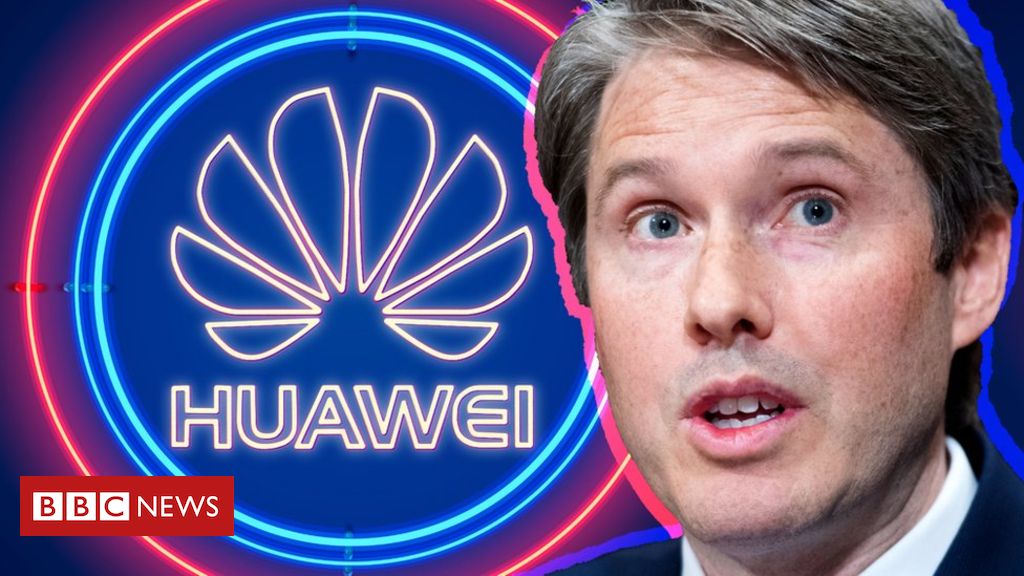merica's top cyber-security official has warned that the Trump administration has not given up on its fight to stop the UK using Huawei for its 5G networks.
Robert Strayer, the US deputy assistant secretary for cyber and communications, said he did not believe the government's decision to give the Chinese firm limited access was final.
"Our understanding is that there might have been some initial decisions made but conversations are continuing," he told the BBC.
Mr Strayer warned again that allowing Huawei in would threaten intelligence sharing between the US and UK.
"If countries adopt untrustworthy vendors in 5G technology, it will jeopardise our ability to share information at the highest levels."
The diplomat has been on a tour of Europe this week, reinforcing the Trump administration's message that Huawei has close ties with the Chinese Communist Party and poses a security threat.
Speaking from Madrid, he said he had been telling European politicians that allowing in a high-risk firm like Huawei could let China "undermine the critical infrastructure riding on 5G networks as well as exfiltrate sensitive data."
Meanwhile, the White House chief of staff Mick Mulvaney was in Downing Street on Thursday meeting officials including Dominic Cummings to increase the pressure on Boris Johnson's government.
The meeting was described as "constructive" and "lengthy", but afterwards a spokesperson said the UK government's position on the rollout of 5G had not changed since it was outlined in January.
Just a mile or so away at London's Dorchester Hotel, Huawei was holding a lavish event where it trumpeted its success in winning 5G contracts and claimed that its equipment was more advanced than that of its rivals.
The controversial Chinese firm revealed that it had won 91 5G contracts, up from 65 in December.
47 of Huawei's commercial 5G customers are in Europe, despite the pressure on operators by the US to steer clear of the company.
The other big players in 5G equipment in Europe are Finland's Nokia and Sweden's Ericsson, while in the United States the South Korean giant Samsung is also a major supplier.
But in an interview with the BBC, Paul Scanlan, chief technology officer of Huawei's carrier business group, said he was confident that his company's equipment was in the lead, both in sales and in its technical standards.
"Somewhere between one and two or more years ahead of the others," was what he said his customers told him.
He claimed that Huawei's spending on research and development had given it that lead. As an example, he explained that Huawei's founder Ren Zheng Fei had told his R&D team they must reduce the weight of their 5G radio equipment from 45kg to 25kg so that it could be installed without a crane.
I put it to Mr Scanlan that the United States had accused Huawei of building its dominant position in the market by encouraging staff to steal other companies' intellectual property.
"I read that in the newspaper," he replied. "And just because somebody says that doesn't make it the truth."
Robert Strayer does not believe that Huawei has a lead over its rivals when it comes to the quality of its technology.
"They have engaged in a propaganda campaign to make people around the world think that they are the only alternative. It is simply not true," he said.
"Nokia, Ericsson and Samsung provide an equivalent quality in their product and don't put individuals' information and business information at risk."
The diplomat insisted that the United States would keep talking to the UK about this issue and said he was confident that they would find a way forward.
For his part, Huawei's Paul Scanlan says the Chinese company is here to stay. Something has got to give.
SOURCE: BBC

